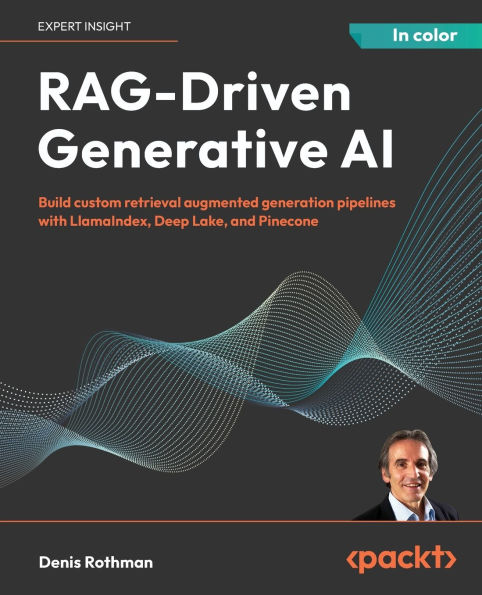Title: Harnessing RAG Flow for Intelligent Data Retrieval and Generation
Abstract Retrieval-Augmented Generation (RAG) is a cutting-edge approach that enhances language models by integrating external knowledge sources. This white paper explores RAG Flow, a structured framework designed to optimize the implementation of RAG-based systems, enabling efficient document indexing, retrieval, and response generation. We provide an in-depth analysis of RAG Flow’s architecture, benefits, and practical applications. Furthermore, we outline a comprehensive implementation guide and highlight how IAS Research can assist organizations in leveraging RAG Flow for enhanced AI-driven solutions.
1. Introduction to RAG Flow With the exponential growth of digital data, traditional AI models struggle to provide accurate, contextually relevant responses. Retrieval-Augmented Generation (RAG) mitigates this challenge by integrating an external retrieval mechanism with a generative model. RAG Flow offers a systematic approach to implementing RAG, ensuring scalable and efficient knowledge retrieval for AI-driven applications.
2. RAG Flow Architecture and Key Components A well-structured RAG Flow framework consists of the following critical components:
- Document Processing: Converts raw text data into a structured format, enabling seamless indexing.
- Indexing Mechanism: Stores documents in a retrievable database, optimizing search performance.
- Retrieval System: Implements vector-based search and similarity algorithms to fetch relevant documents dynamically.
- Generative Model Integration: Enhances response accuracy by combining retrieved knowledge with pre-trained language models.
- Orchestration Layer: Manages interactions between indexing, retrieval, and generation components, ensuring smooth workflow execution.
3. Advantages of Implementing RAG Flow RAG Flow provides several benefits that make it a superior choice for AI-driven knowledge systems:
- Enhanced Context Awareness: Reduces hallucination in AI-generated responses by grounding them in factual, retrieved information.
- Scalability and Efficiency: Enables rapid retrieval and processing of vast datasets, making it ideal for enterprise applications.
- Domain-Specific Customization: Allows fine-tuning for specialized industries such as healthcare, finance, and legal research.
- Real-Time Knowledge Augmentation: Ensures responses remain up-to-date by integrating new information dynamically.
4. Implementing RAG Flow: A Step-by-Step Guide Organizations can follow these steps to integrate RAG Flow into their AI applications:
- Install Dependencies:pip install ragflow llama-index
- Initialize Document Processing:import ragflow processor = ragflow.DocumentProcessor()
- Index Documents for Efficient Retrieval:index = ragflow.LlamaIndex() index.add_documents(["document1.txt", "document2.txt"])
- Query the System for Intelligent Responses:response = index.query("What are the key principles of RAG?") print(response)
- Optimize and Scale: Fine-tune retrieval models, integrate caching mechanisms, and implement access controls for enterprise-grade deployments.
5. Use Cases and Industry Applications RAG Flow is a versatile framework with wide-ranging applications across multiple industries:
- Customer Support Automation: Enhances chatbot capabilities with real-time knowledge retrieval.
- Enterprise Knowledge Management: Enables businesses to build intelligent search systems for internal document retrieval.
- Scientific Research and Legal Analysis: Facilitates information extraction from large datasets, aiding researchers and legal professionals.
- Healthcare Informatics: Supports medical decision-making by retrieving up-to-date clinical data and research findings.
- E-Learning and Training: Improves educational experiences by dynamically retrieving and presenting relevant study materials.
6. How IAS Research Can Support RAG Flow Implementation IAS Research (ias-research.com) specializes in AI-driven solutions, offering expertise in developing and deploying RAG Flow-based systems. Organizations partnering with IAS Research can benefit from:
- Tailored RAG Solutions: Custom implementations designed to meet specific industry and enterprise needs.
- Data Engineering and Index Optimization: Ensuring efficient document storage, retrieval, and processing for large-scale datasets.
- Seamless System Integration: Expertise in embedding RAG Flow into existing business intelligence and AI frameworks.
- Scalability and Performance Enhancements: Advanced optimizations for high-performance AI applications.
- Training and Consultation: Expert-led training programs and workshops to empower organizations in leveraging RAG Flow effectively.
With IAS Research’s expertise, businesses can successfully implement RAG Flow to enhance AI-driven applications, optimize information retrieval accuracy, and achieve a competitive advantage.
7. Conclusion RAG Flow represents a paradigm shift in AI-driven information retrieval and generation. By integrating retrieval mechanisms with generative models, organizations can develop intelligent applications that provide highly accurate, context-aware responses. This white paper has outlined the architecture, advantages, and implementation steps of RAG Flow, along with expert support from IAS Research. With the right approach, businesses can harness RAG Flow to drive digital transformation and innovation across multiple domains.
8. References
- Bessant, J., & Tidd, J. (2020). Innovation and Entrepreneurship. Wiley.
- Flanagan, D. (2020). JavaScript: The Definitive Guide. O'Reilly Media.
- Symon, K., & Singh, S. (2023). Digital Marketing All-in-One for Dummies. Wiley.
- Allan, A. (2022). One Page Marketing Plan. Successwise.
- LlamaIndex Documentation - https://gpt-index.readthedocs.io/en/latest/
- Retrieval-Augmented Generation (RAG) by Meta - https://ai.facebook.com/blog/retrieval-augmented-generation-rag/
- IAS Research Official Website - https://ias-research.com
- Keen Computer Official Website - https://keencomputer.com
- GitHub Repository for RAG Implementations - https://github.com/facebookresearch/RAG
- RAGFlow Library Documentation - [Project Website or Documentation Link]
For further details on RAG Flow implementation and consultation services, visit [Project Website or Documentation Link] or contact IAS Research at [ias-research.com].



